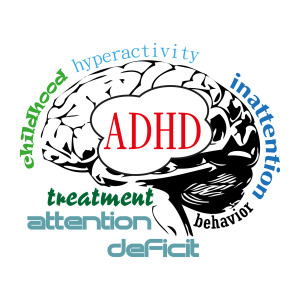Acronyms are used to describe different medical conditions and ADHD is an acronym we have heard more often in recent decades. What is ADHD? It stands for attention deficit hyperactivity disorder, a neurobehavioral disorder commonly diagnosed during childhood. This condition may go away during adolescence or it may persist into adulthood and in either case, treatment is typically recommended by a medical professional.
What is ADHD?
Approximately eight to ten percent of school-age children are estimated to suffer from ADHD, a condition that contributes to hyperactivity, difficulty focusing, and acting without thinking. Boys are approximately three times more likely to be diagnosed with this condition than girls are but researchers do not yet understand why. Children suffering from ADHD may understand how they are expected to behave but be unable to fulfill these expectations due to difficulty paying attention or sitting still.
Particularly when very young, all children exhibit such behavior. The difference is thatattention deficit disorder symptoms occur in various settings and persist over time. They impair the ability of a child to function in academic, home, and social environments. Fortunately, treatment is available to help children suffering from this condition to manage symptoms and live healthy, fulfilling lives.
What is Attention Deficit Disorder in Adults?
Approximately 60 percent of children with ADHD continue to experience symptoms into adulthood. Though approximately eight million adults suffer from ADHD, few are identified or treated for the condition. Attention deficit disorder symptoms in adults include difficulty concentrating, remembering information, following directions, organizing tasks, or completing tasks within prescribed time limits. Left unmanaged, these symptoms can create associated emotional, social, behavioral, academic, and work-related problems.
Anxiety, mood swings, and depression are three conditions that may stem from ADHD or could result from difficulties adjusting to ADHD. Some attention deficit disorder symptoms can cause employment or relationship problems, make it difficult to control anger, create low self-esteem, and may even lead to substance abuse or addiction. These behaviors could range from mild to severe and vary based on the situation or be constantly present.
Medical professionals can provide scientific answers to the question, “What is ADHD?” They can also recommend treatments to address various attention deficit disorder symptoms.

